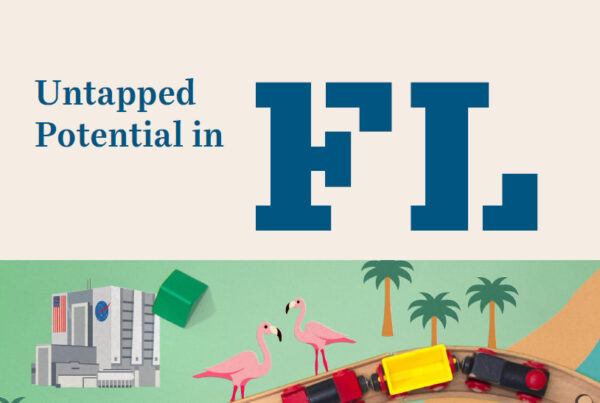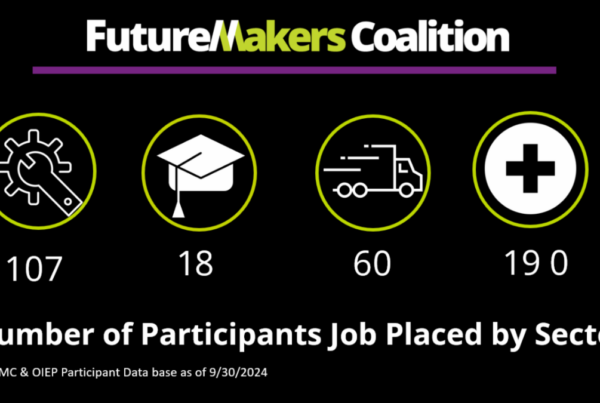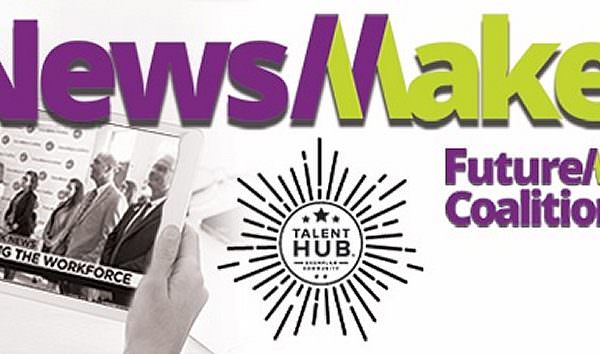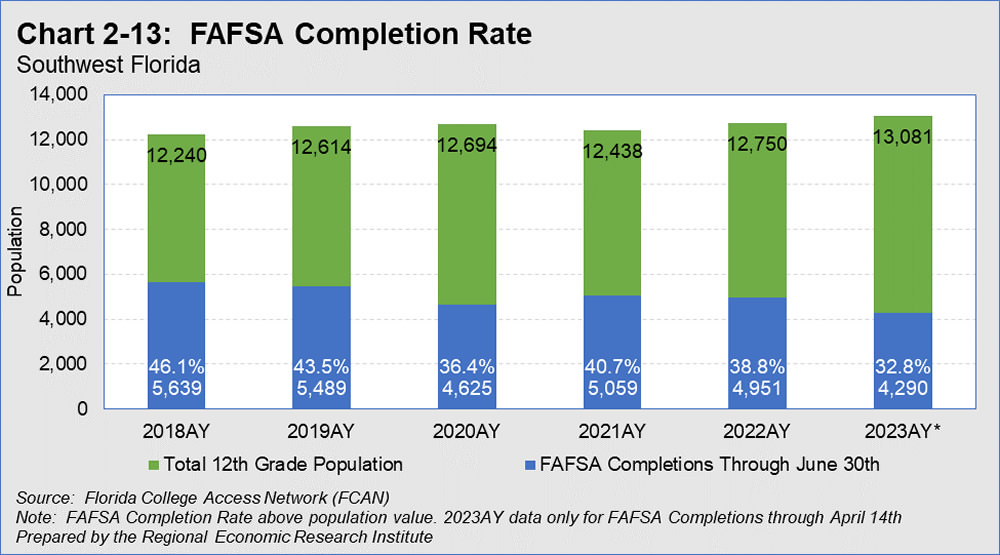
The 2023 Southwest Florida Educational and Workforce Outcomes Report confirmed a disturbing, ongoing trend – FAFSA completion rates (to obtain a Pell Grant) continue to decrease among the region’s 12th grade student population. Data for 2023AY (through June 30, 2023) suggest that only 32.8% of 12th grade students completed a FAFSA application – down from 46.1% in just five years (2018AY).

Despite data that suggest a positive correlation between the level of educational attainment and median family income, recent studies have found that the overall decline in post-secondary enrollment (and the related decline in FAFSA completion rate) may be fueled by an increasing skepticism among students about the value of a college education in light of ballooning tuition and college costs.
Additional data show that the declines in post-secondary enrollment and the number of Pell Grant awards may be related to income level. Between 2010 and 2020, Florida undergraduate enrollment with Pell Grants (i.e. lower-income or financially needy students) declined 29.4%. Conversely, Florida undergraduate enrollment without Pell Grants (i.e. higher-income students) increased by 20.9% between 2010 and 2020. As a result, the overall decrease in undergraduate enrollment is being driven exclusively by the loss of students from low or lower middle-income backgrounds.
Florida Undergraduate Post-Secondary Enrollment Rate by Pell Grant Awards
2010-2020
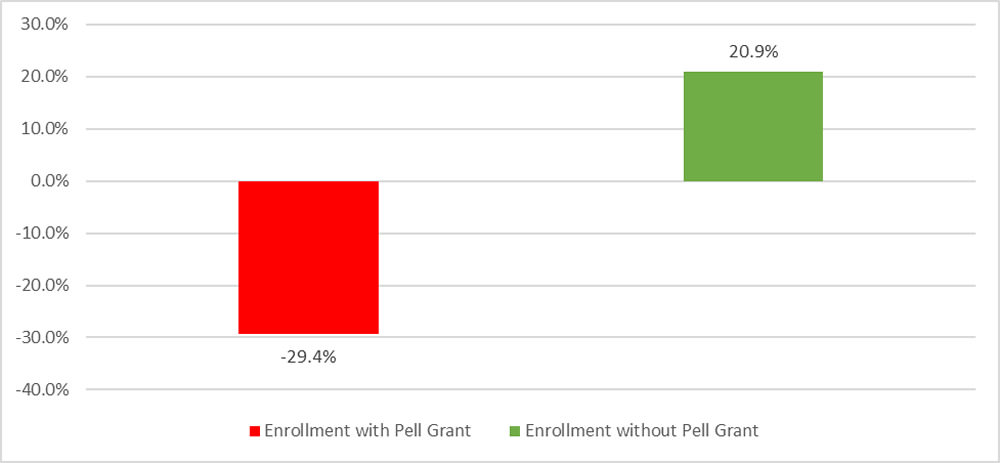
This observation is further supported by the results of a February 2023 survey of more than 1,000 high school students ages 14-18 from low-income, first-generation and BIPOC (Black, Indigenous and people of color) communities conducted by the ECMC Group**. Only 45% of the students believe education after high school is necessary, illustrating a significant risk for continued underrepresentation of low-income, first-generation, and BIPOC students in postsecondary education.
**https://www.questionthequo.org/news/buzz/white-paper-insights-from-underserved-student-populations
This is not an uncommon story among students in the Southwest Florida region and kindles the motivation behind FutureMakers Coaliton and our network of dedicated professionals. We strive to serve our target population that includes traditional-age students who are facing significant barriers to education beyond high school, as well as adults with no education beyond high school and adults who started a degree or certificate program but never finished. Join us – become a FutureMaker!

